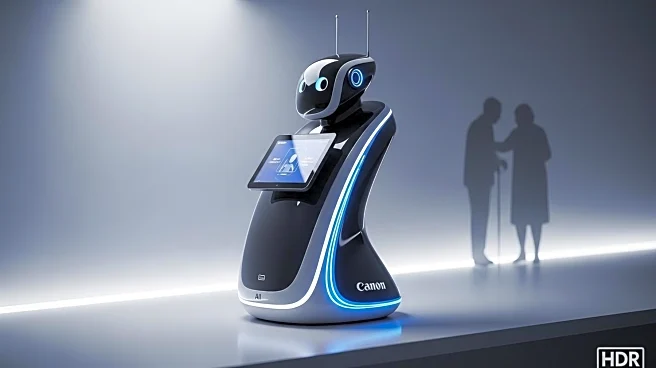What's Happening?
Teton.ai, a company specializing in predictive intelligence for healthcare, has announced a successful $20 million Series A funding round. The investment was led by Plural, with participation from Bertelsmann Investments, Antler Elevate, Nebular, and PSV Tech. Teton.ai aims to transform healthcare delivery from reactive to predictive, utilizing advanced AI and computer vision technology. This approach is designed to enhance clarity, foresight, and actionability in healthcare environments, ultimately providing safer and higher-quality care at reduced costs. The company has experienced significant growth, including a 13-fold increase in annual recurring revenue and a 300% year-on-year customer growth. Teton.ai has partnered with Nvidia to develop the world's largest point-of-care dataset in senior care, serving communities and hospitals across the U.S. and Europe.
Why It's Important?
The shift from reactive to predictive care represents a significant advancement in healthcare, particularly in elderly care. By utilizing AI technology, Teton.ai aims to reduce emergencies, optimize staffing, and improve overall care outcomes. This approach not only enhances the quality of life for residents but also lowers delivery costs, addressing the economic challenges in senior care. The platform's ability to deliver measurable ROI and structural advantages from day one is crucial for stakeholders, including caregivers, operators, and owners. The benefits extend across the care ecosystem, offering safer and more dignified care for residents, increased transparency for families, improved workflows for operators, and enhanced portfolio performance for owners.
What's Next?
With the new funding, Teton.ai plans to expand its operations nationwide in the U.S. and deepen its presence in Europe. The company is also focused on growing its engineering team to further develop its predictive AI capabilities. As Teton.ai scales its operations, it aims to push the boundaries of AI in healthcare, potentially transforming the $220 billion global market for inpatient, long-term, skilled nursing, and in-home care. The expansion and technological advancements could lead to broader adoption of predictive care models, influencing healthcare policies and practices.
Beyond the Headlines
The integration of AI in healthcare raises important ethical and legal considerations, particularly regarding data privacy and the use of digital twins to monitor residents. As AI technology becomes more prevalent, stakeholders must address these concerns to ensure responsible and transparent use. Additionally, the cultural shift towards predictive care may influence how society views aging and elderly care, potentially leading to more proactive and dignified approaches to senior living.











